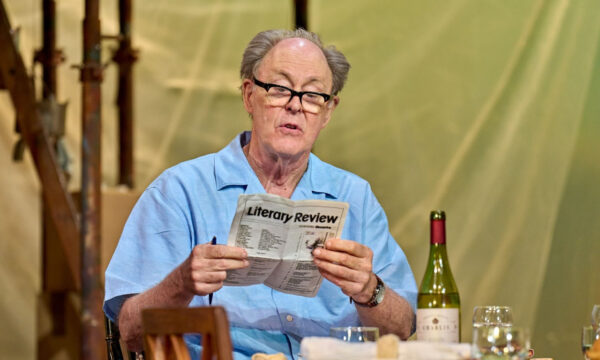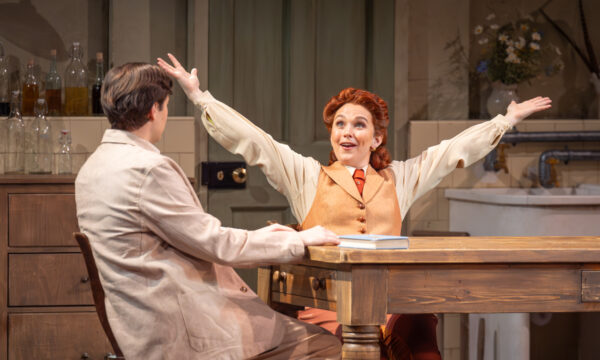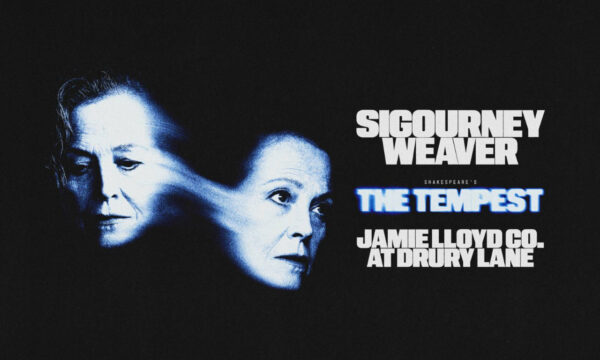Mack and Mabel at Southwark Playhouse

Having originally opened on Broadway in 1974 for a 66-performance run, Jerry Herman and Michael Stewart’s Mack and Mabel was nominated for eight Tony Awards, but won none. Generally slammed by the press, The New York Times called the production “encouraging but guarded” and The Advertiser commented that audiences “weren’t ready” for its dark story of drugs, destruction and doomed love. As is often the case, on-paper failure fuelled the production’s cult status, and the re-released score reached number six in the charts in the 80s. Now Thom Southerland, driven by a “burning ambition” to rewrite and revise the play, has brought a reinvigorated version of Mack and Mabel to the Southwark Playhouse.
Mack and Mabel, like all the best Hollywood fairy tales, is based upon a true story; the tumultuous love affair between Mabel Normand and Mack Sennett – the first a brazen but beautiful delicatessen worker turned movie star and the second the misanthropic but troubled movie producer who discovers her. Mack Sennett is determined to make movies his way, always desperate to “make the world laugh”, whilst in his private life his inner turmoil, obsessive character and ferocious work ethic drive away Mabel – the only woman he truly loves.
It’s easy to see why audiences in the 1970s didn’t take to the production. With a blunt circular narrative, the play opens to the haggard and drunken Mack Sennett torturously gazing at a movie starring Mabel. In flashback, the story of their love affair, her addiction and eventual death from tuberculosis unfolds. Until in the final scene, the romance, glitz and glamour fall apart and we are slammed back to reality: Mack still standing in front of the projector, the only solid reminder of Mabel, and telling her (as he never did during her life) that he loves her. During its first run, Mack and Mabel competed with Grease, Annie and The Magic Show – all musicals with happy endings. The jarring combination of bright, bold dancing numbers with such a sober narrative was simply unwelcome.
In this new production, the bittersweet force of the narrative becomes its momentum. There is a melancholic irony that Mack, constantly drawn to comedy, escapism and the happy ending, is caterwauling towards his own tragedy. The production is a celebratory one: homage to the bated-breath excitement of early cinema, but also an examination of the darker, seedier underbelly. This said, Mabel’s downfall is by no means shocking. In fact, it is dealt with almost too delicately, with her death appearing distinctly anti-climactic. The most disconcerting aspect is perhaps the complex characterisation of Mack, who reels wildly between aggressive misogyny and sensitive introspection.
Lee Proud’s choreography mastered the space of Southwark Playhouse Vaults. Like a Broadway jack-in-the-box, the biggest numbers such as Hundreds of Girls and Tap Your Troubles Away seemed uninhibited by space. Likewise, every player was pitch-perfect, but more can be said for Laura Pitt-Pulford (Mabel) whose powerful vocal talent encapsulated the cocky, self-assured and inherently memorable nature of Mabel Normand.
As musicals go, it is impossible to fault the technical execution of Mack and Mabel – it’s a rollicking Broadway show, condensed but not limited. Norman Bowman and Laura Pitt-Pulford (Mack Sennett and Mabel Normand) confidently embody two of Hollywood’s most iconic figures. A memorable production and a brave reworking – Mack and Mabel might not dish up many surprises, but they certainly know how to put on a show.
Abigail Moss
Mack and Mabel is at Southwark Playhouse from 5th July until 25th August 2012. For further information or to book visit the theatre’s website here.




















Facebook
Twitter
Instagram
YouTube
RSS